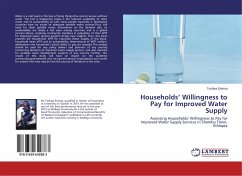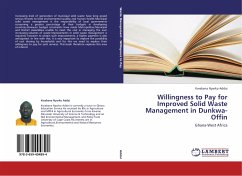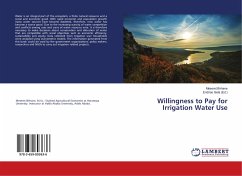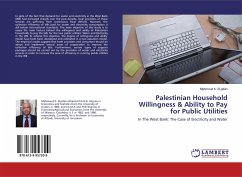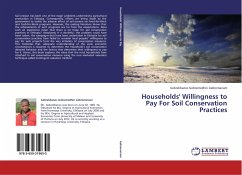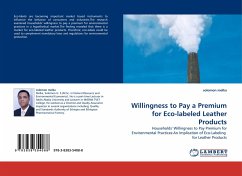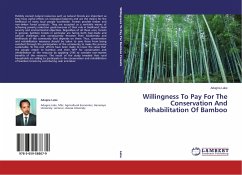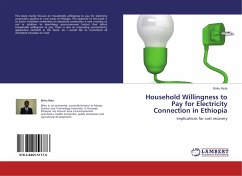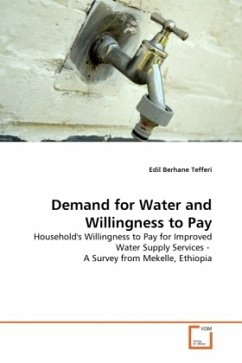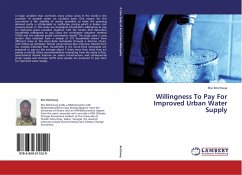
Willingness To Pay For Improved Urban Water Supply
Versandkostenfrei!
Versandfertig in 6-10 Tagen
32,99 €
inkl. MwSt.

PAYBACK Punkte
16 °P sammeln!
A major problem that confronts many urban areas in the world is the provision of potable water on constant basis. One reason for this occurrence is the inability of service providers to meet the growing demand partly is attributable to ineffective pricing which is below cost recovery levels. In this study we investigate household s willingness to pay for improved water provision together with the factors that determine households willingness to pay using the contingent valuation method (CVM) and the ordered probit econometric model. The study used a cross section data collected from a sample o...
A major problem that confronts many urban areas in the world is the provision of potable water on constant basis. One reason for this occurrence is the inability of service providers to meet the growing demand partly is attributable to ineffective pricing which is below cost recovery levels. In this study we investigate household s willingness to pay for improved water provision together with the factors that determine households willingness to pay using the contingent valuation method (CVM) and the ordered probit econometric model. The study used a cross section data collected from a sample of 315 households drawn from different areas in the Accra-Tema metropolis through a discrete choice with follow-up elicitation format using face-to-face interview. Results from our analysis indicated that, households in the Accra-Tema metropolis are prepared to pay on the average about 7 times more than what they are paying currently. Policy recommendation emanating from the study is that, governments should improve on water infrastructure and consequently water supply and increase tariffs since people are prepared to pay more for improved water supply.



